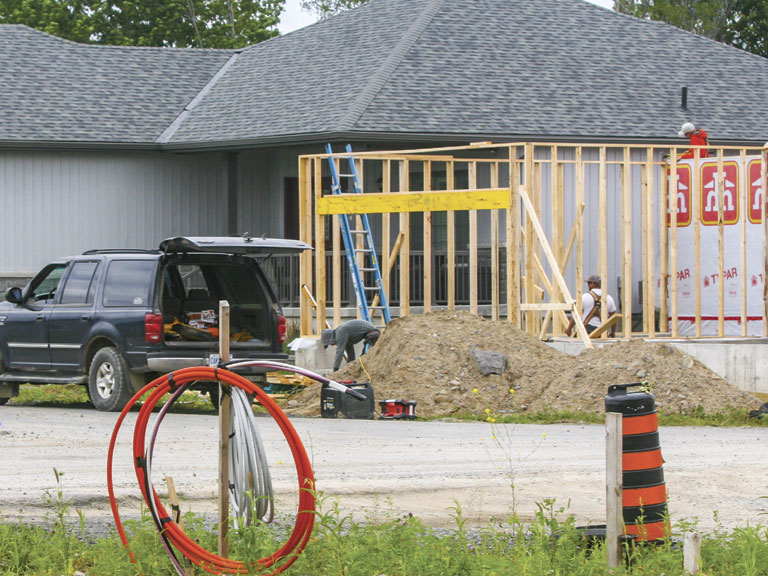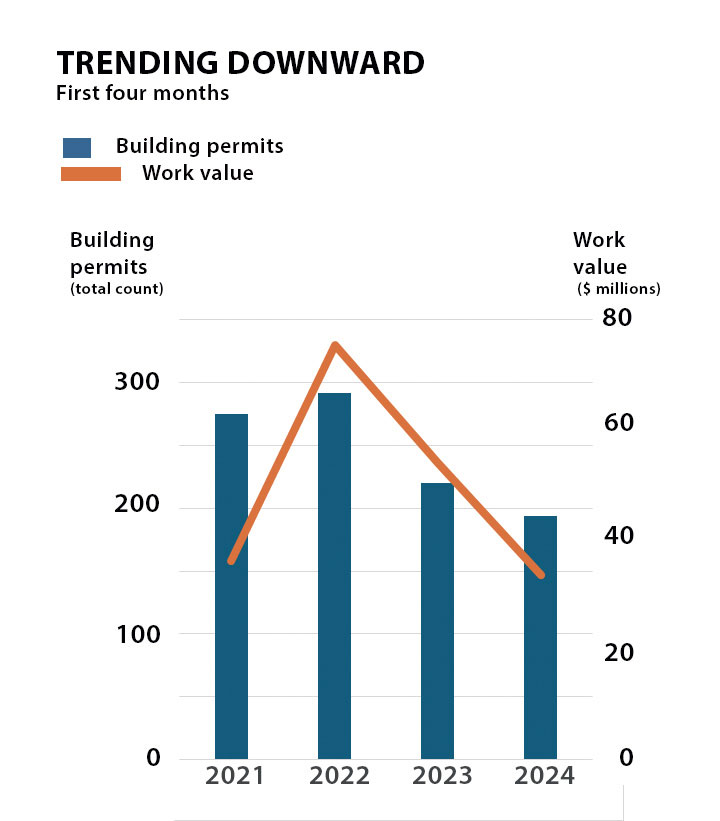County News
Hammers down

Construction activity trending downward
Building in Prince Edward County is slumping. Badly. The number of building permits issued so far in 2024 is down 13 per cent over the same period last year. It’s a trend. Compared to 2022, permits are down 50 per cent.
But it’s not just permit counts; construction activity is declining in general. The work value represented by building permits so far in 2024 is $33.6 million. This compares to $54 million for the same period last year and $75 million the year before. The trendline is distinctly negative.
It is difficult to see the catalyst that can change this trajectory.
Twenty-six new homebuilding permits were issued so far in 2024, two more than were taken in the same period last year, but half the rate of new homebuilding in 2022. Growth spurts in May and August last year buoyed a stagnant year. But even when these outlying months are included, just 154 new homes were built last year. Well short of the 450 new homes forecast to be built last year.
According to Watson and Company, a consultancy, 485 new homes are projected to be built this year according to its 2021 study. As of today, the County is on track to issue just 78 new home permits. New homes are needed to support massive waterworks spending underway in Wellington and soon Picton. Otherwise, the costs must be borne by existing waterworks users.
A strong upswing this summer will be required just to keep on par with last year’s sluggish pace of new homebuilding.
What explains the trend? It is likely a combination of factors.
Anecdotally, new homes are struggling to close in the County as higher interest rates take hold. Folks who planned a mortgage at historically low interest rates are now calculating whether they can manage much higher monthly payments. Some are making the painful decision to walk away from their deposits.
High input costs (land, development charges, building fees, labour shortages) mean new homes are often priced beyond what the average family can afford. Where the County was once a relatively inexpensive place to put down roots or retire, the context has changed over the past decade. Resale home prices have been bid up to levels only the wealthy can aspire to. Meanwhile, waterworks costs are among the highest in the province, while property taxes escalate rapidly.
By contrast, in Toronto, condo vacancies are rising, and rental rates are easing. Trading an urban condo for a rural idyll now regularly comes at a premium rather than a discount enjoyed in a previous era.
Furthermore, changes to the federal capital gains tax inclusion rate seem likely to dampen enthusiasm for second homes. A large share of the County’s housing stock is owned as a second home.
Meanwhile, Shire Hall says that the slow pace of developing and expanding waterworks infrastructure is impeding new homebuilding. They suggest that once a new regional waterworks plant is built and a pipeline dug to Picton, the new homebuilding pace will pick up strongly. Shire Hall’s chief manager, Marcia Wallace, says more than 8,000 units are near planning approval.
Notwithstanding Shire Hall’s confidence, barring a significant correction in County land values, a considerable easing of labour shortages, and a rapid new supply of places for workers to live, it is difficult to see the catalyst that moves the County beyond the traditional pattern.


Comments (0)